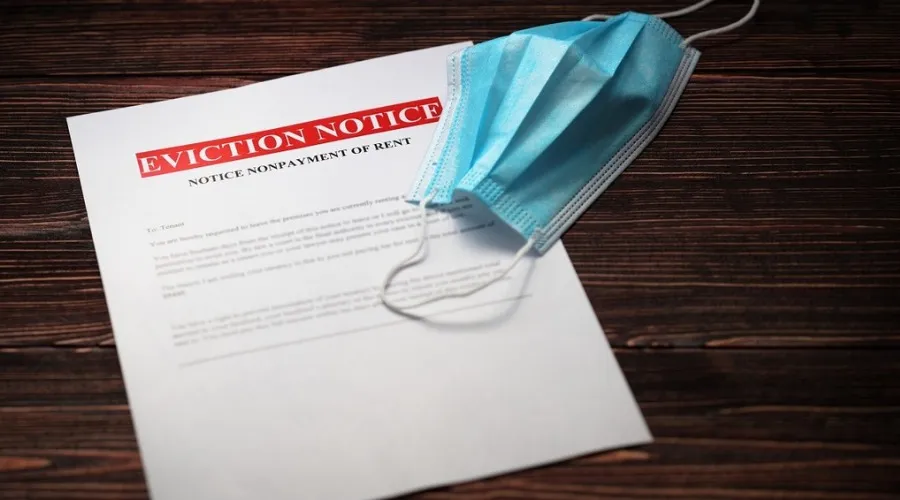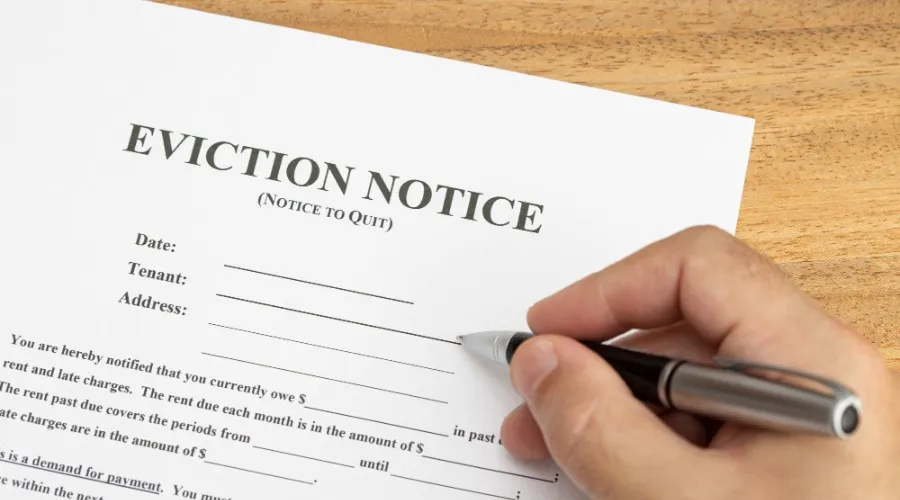Navigating the eviction process in New Jersey can be challenging for both landlords and tenants. From extended notice periods for seniors to strict rules about tenant belongings after eviction, understanding your legal responsibilities is essential. This guide from LeaseRunner helps landlords stay compliant with New Jersey law and avoid common mistakes during the eviction process.
What’s New in New Jersey Eviction Laws (2025 Update)
As of August 2025, New Jersey hasn’t passed any new eviction laws, but a few key proposals are on the table. Most notably, the Renters’ Rights Bill (A5432) and suggested changes to court forms could reshape how evictions work in the state. These proposals focus on strengthening tenant protections, adding more legal requirements for landlords, and rebalancing landlord-tenant relationships.
Renters' Rights Bill (A5432)
The Renters’ Rights Bill (A5432) aims to protect vulnerable renters and increase accountability for landlords. Though details are still developing, key expected changes include:
- Stronger anti-retaliation protections: Tenants couldn’t be evicted for reporting issues or organizing legally.
- New tenant defenses: Renters could argue poor living conditions or discrimination in court.
- Right to legal counsel: Landlords might be required to notify tenants about their right to a lawyer during the eviction process.
- Limits on "no-cause" evictions: Landlords may need clear reasons to end leases, especially in periodic tenancies.
If passed, this bill could raise legal costs, extend eviction timelines, and significantly change the eviction process in New Jersey by adding new tenant defenses.
Proposed Amendments to Landlord-Tenant Forms and Processes
The New Jersey Courts are considering updates to legal forms and timelines. These changes may simplify the filing process but increase paperwork. To ensure you're working with accurate documents, review the legal requirements at LeaseRunner's state law section. These revisions could:
- Simplify legal forms and clarify tenant rights.
- Require landlords to notify tenants about legal counsel or property condition certifications.
- Standardize timelines for submitting evidence.
- Reduce court delays while ensuring tenants receive fair notice and response time.
These process changes aim to make the eviction process in New Jersey more transparent and fair, but may also increase paperwork for landlords.
Legal Grounds for Eviction in New Jersey
Here’s what New Jersey landlords need to know about valid reasons to evict a tenant.
Nonpayment of rent
Failure to pay rent is one of the most common eviction reasons in New Jersey. If rent is even one day late, and no grace period is outlined in the lease, the landlord can begin the eviction process in New Jersey for nonpayment.
Landlords may charge a late fee only if it’s in the lease and capped at 5% of the monthly rent. If they’ve accepted late payments in the past, a 30-day Notice to Pay or Quit is required. For best legal protection, consider using LeaseRunner’s lease agreement templates to ensure your terms are enforceable under state law.

Lease violations
Breaking the lease is another valid ground for eviction in New Jersey. This includes actions like damaging the property, smoking in restricted areas, or keeping unauthorized pets. Landlords must first issue a Notice to Cease, giving tenants a chance to fix the issue. If the violation continues, a 30-Day Notice to Quit is served before filing for eviction.
Disorderly conduct or illegal activity
Engaging in illegal activity on the property is serious and can lead to fast eviction. Landlords must serve a 3-Day Notice to Quit with proof of the offense.
These violations are covered under N.J. Stat. Ann. § 2A:18-53(c) and § 2A:18-61.2(a), allowing landlords to initiate the eviction process in New Jersey without delay.
Habitual late payments
If a tenant repeatedly pays rent late, even after being warned, landlords can issue a Notice to Cease. Continued late payments (usually two or more) can lead to a 30-Day Notice to Quit, and then eviction. Make sure to document the payment history to support your case.
Owner Move-In or Property Conversion (No-Fault)
For landlords planning to convert the property (e.g., into condos) or move in themselves, New Jersey law requires a 2-month Notice to Quit. After 2 months, if the tenant hasn’t vacated, the landlord can proceed with the eviction.
Serving a legal eviction notice in New Jersey
Before a landlord can begin the eviction process in New Jersey, state law requires the proper delivery of a legal notice. Here’s what you need to know to stay compliant and avoid costly mistakes.
What types of eviction notices are used in New Jersey?
Under the New Jersey Anti-Eviction Act (N.J.S.A. 2A:18-61.1 et seq.), landlords must serve different types of notices depending on the reason for eviction. Understanding which notice applies to your case is key to moving forward legally.
- Notice to cease: This is the first warning for lease violations such as unauthorized pets, excessive noise, or repeated late rent. It gives the tenant an opportunity to fix the problem. Typically, a 30-day cure period applies.
- Notice to quit: If the tenant does not correct the behavior after receiving a Notice to Cease, or in cases where correction isn’t applicable (like illegal activity), this notice demands that they vacate the rental unit. Timeframes vary:
- 3 days: For severe misconduct like disorderly behavior or criminal activity.
- 30 days: For recurring lease violations or late payments after a prior Notice to Cease.
- 2 months: For no-fault evictions such as owner occupancy or converting the property for a different use.
- No specific period: In nonpayment of rent cases, tenants may avoid eviction by paying the full amount before the court date.
- Demand for payment: Typically served alongside a Notice to Quit, this notice demands the overdue rent and must clearly outline the total owed.

What should be included in a New Jersey eviction notice?
To protect your rights and ensure enforceability, your eviction notice must be clear, complete, and legally sound. Be sure to include:
- Names and addresses: Full legal names of the tenant(s) and landlord, along with contact details.
- Rental property address: The specific unit or address in question.
- Grounds for eviction: A detailed explanation—whether it’s failure to pay rent, violating the lease, or illegal activity. Reference the lease clause or statute where applicable.
- Type of notice and timeline: Clearly specify whether it's a Notice to Cease or Notice to Quit, along with the required time frame (e.g., 30 days, 2 months).
- Date Issued: The exact date the notice is served.
- Landlord’s Signature: Required for validity.
- Tenant protections (if applicable): For no-fault evictions, include information about tenant rights, relocation options, or special protections (especially for seniors or low-income renters).
- Delivery method: Note how the notice will be served (e.g., certified mail, in-person).
How to serve an eviction notice in New Jersey
Proper delivery of an eviction notice is not optional—it's required by law and could determine whether your case moves forward or gets dismissed under the eviction process in New Jersey.
Accepted methods of delivery include:
- Personal service: Hand-delivering the notice directly to the tenant. If they’re not home, it can be left with someone in the household who’s at least 14 years old.
- Certified mail: Send via certified mail with a return receipt requested, providing proof the tenant received it.
- Posting + regular mail: For some cases, posting the notice on the tenant’s door and following up with a mailed copy is allowed, but it must comply with court requirements.
- Professional service: Hiring a process server or county sheriff ensures legal compliance and proper documentation.
Landlords should always document the time, date, delivery method, and recipient to provide proof in court if needed.
Mistakes Landlords Should Avoid When Serving Notices
Even small errors can stall or ruin your eviction case. Be cautious and avoid these common pitfalls:
- Incomplete or incorrect notices: Omitting key details or giving the wrong notice period makes the notice invalid.
- Improper delivery: Notices sent by email or dropped off without documentation can be legally challenged.
- Wrong timeframes: Giving a tenant less time than the law allows—like 15 days for a 30-day requirement—can backfire in court.
- Vague language: Don’t leave room for interpretation. Clearly outline what the tenant did and what they must do.
- Illegal evictions: Never attempt a “self-help eviction” by changing locks or removing belongings. It’s illegal under the eviction process in New Jersey and can lead to fines.
- Overlooking Tenant protections: Seniors, disabled tenants, and others in protected categories may have extended rights—be sure to account for these when planning a no-fault eviction.

Step-by-Step Eviction Process in New Jersey
The eviction process in New Jersey is strict and process-driven. Missing a step can delay or even void your eviction case. Here’s how to legally evict a tenant in NJ, from start to finish.
Step 1 – Serve a proper eviction notice
To begin the eviction process in New Jersey, landlords must first serve the appropriate eviction notice. The notice type depends on the tenancy and reason:
- 7-day notice to quit – For weekly tenancies
- 30-day notice to quit – For monthly tenancies or most lease violations
- 90-day notice to quit – For yearly leases
- Notice to comply – For curable lease violations
- Notice to quit for nonpayment – For unpaid rent cases
You can draft this yourself or use an online NJ eviction notice generator to ensure legal accuracy. Make sure it aligns with New Jersey state requirements to ensure legal compliance.
Step 2 – File unlawful detainer in circuit court
You must file a Complaint for Eviction in the Special Civil Part of the Superior Court, located in the same county as the rental property.
To start the eviction process, fill out the complaint form with the correct details, like the reason for eviction and rent history. Make sure to attach copies of the lease, any notices given, and any proof that supports your case. Lastly, remember to pay the court filing fees, which differ by county. Following these steps will help you have a strong case.
Keep in mind: You can’t file until the legally required notice period has passed — which can be anywhere from 3 days to 3 years, depending on the eviction process in New Jersey.
Step 3 – Serve summons and complaint
Once your complaint is accepted, the court issues a Summons and Complaint, which must be served on the tenant properly. This can be done by a Special Civil Part Officer, process server, or via court-authorized methods:
- Personal service – Handed directly to the tenant
- Substituted service – Left with someone 14+ years old in the home
- Posting – Placed visibly on the tenant’s door
- Certified and regular mail – Used if other methods fail
Proper service is key. If it's done incorrectly, your case may be delayed or dismissed.
Step 4 – Tenant response period
The tenant has a right to appear in court and defend their case.
- A hearing is typically scheduled 10 to 30 days after the Summons is issued.
- Tenants don’t need to submit a written response in New Jersey — they simply need to show up at the hearing.
- If the tenant pays all rent owed (including fees) within 3 business days of the hearing, the eviction is canceled.
- Tenants may argue against the eviction on legal grounds (e.g., improper notice, retaliation, discrimination).
Step 5 – Court Hearing
The court evaluates the case and decides if eviction is justified.
At the hearing:
- The landlord must provide proof of claim: lease agreement, payment records, photos/videos (if applicable), and correspondence.
- If the tenant fails to appear, you may win by default.
- If the judge rules in your favor, you’ll be granted a Judgment for Possession.
- If the tenant still owes rent, they have 3 business days to pay in full to stop the eviction.
Step 6 – Obtain Writ of Possession
If the tenant hasn’t paid or vacated within 3 business days of the judgment, you may request a Warrant for Removal from the court. This document allows the sheriff or court officer to begin the physical eviction process. Once issued, the Warrant gives the tenant 3 additional days to move out voluntarily.
Note: Self-help evictions — like changing locks or turning off utilities — are strictly illegal under the eviction process in New Jersey statutes.
Step 7 – The Sheriff enforces, and the landlord regains possession
If the tenant fails to leave within the three days after the Warrant for Removal is issued, the sheriff will carry out the eviction. In certain situations, the tenant may request an Orderly Removal, which allows them an extended timeframe of 7 days to 6 months to vacate, if the court finds there is good cause.
Once the tenant has moved out, any personal property left behind must be stored for 33 days. Learn more about your obligations in this abandoned property guide for NJ landlords.
Eviction Timeline and Cost in New Jersey
Here’s a simplified breakdown of how long it typically takes to evict a tenant in New Jersey, plus the potential expenses involved. The steps follow the New Jersey Anti-Eviction Act and may vary based on the reason for eviction, tenant cooperation, and local court procedures.
Documents Landlords Should Prepare for a Smooth Eviction Process
Having the right paperwork can make or break your eviction case. Here’s what you’ll need and why it matters.
1. Best record-keeping practices
If a tenant disputes the eviction, you’ll need solid proof. Courts favor written records, so keep everything clear and accessible.
- Scan and store all leases, notices, and communications.
- Backup files to cloud services like Google Drive or Dropbox.
- Use property management software to track leases, payments, repairs, and messages.
- Always document in writing—avoid relying on calls or face-to-face talks.

2. Evidence of nonpayment
Nonpayment of rent is one of the most common reasons for eviction in New Jersey. To support your case, make sure you have:
- A signed lease agreement clearly outlining rent due dates, late fees, and terms of payment.
- Detailed payment history showing when rent was paid, what method was used (check, ACH, credit card), and any outstanding balances.
- Evidence of returned or failed payments—such as bounced checks, insufficient funds notices, or chargeback reports. Also include any fees you've incurred.
- Tenant communication—save copies of rent reminders, late notices, or emails warning the tenant about their overdue balance. Even automated messages can help show the court you gave reasonable notice.
3. Lease violation evidence
Evictions due to lease breaches—like unauthorized occupants, excessive noise, or property damage—require strong evidence. Here’s how to prepare:
- Security footage: If you have cameras on the property, video evidence of the violation can be a game-changer in court.
- Photos or videos: Visual documentation of damage or rule-breaking (e.g., an unauthorized pet) is powerful proof.
- Correspondence: Save complaints from neighbors or any written warnings issued to the tenant.
- Lease clauses: Highlight the specific lease terms the tenant violated. Even if not explicitly stated, serious misconduct can still justify eviction under New Jersey law.
4. Property condition reports
Baseline and follow-up inspections help show what condition the unit was in before and after tenancy. These reports are vital when claiming damages.
- Move-in inspection: Include a signed checklist and visual evidence (photos or videos) documenting the property’s original state.
- Move-out inspection: Compare post-tenancy conditions to the move-in report. Note any excessive damage with dates and media.
- Maintenance records: Keep logs of service requests and how you addressed them. This shows you upheld your duties as a landlord under NJ landlord-tenant law.
- Repair receipts: If you had to fix damage caused by the tenant, include copies of paid invoices with dates and amounts.
- Routine inspection records: If your lease allows, conduct periodic inspections and document any concerns or new damage during the rental period.
Be sure your lease outlines these terms—especially regarding normal property use. Not sure what counts as damage? Check this guide on normal wear and tear to avoid disputes in court.
5 Tips for Landlords to Avoid Common Eviction Mistakes
Evicting a tenant in New Jersey is complex and legally strict. One mistake can cost you time and money. These five tips help landlords stay compliant and avoid common eviction errors.
1. Keep your lease agreements updated and clear
Use clear lease terms for rent, late fees, and rules. Add how notices will be sent. Update leases yearly to follow New Jersey landlord-tenant laws. A solid lease protects you in court and helps prevent disputes.
2. Address issues early and keep records
If problems arise, talk to tenants early—by email or letter. Stay calm and document everything. Offer solutions when possible. A good paper trail proves you acted fairly if the case reaches court.
3. Know your local laws and register your property
Check local rules—some NJ cities have extra eviction steps. Always register your rental and keep licenses up to date. Missing paperwork can lead to delays or case dismissal.

4. Be ready for tenant legal defenses
Tenants may claim unfair treatment or poor property conditions. Keep repair logs, photos, and apply rules fairly. For complex cases, consult an attorney to stay legally protected.
5. Get professional help when needed
Hire a process server to deliver notices properly. Use a property manager for multi-units. Have a lawyer check your case to avoid errors. Accurate records also help with damage or rent claims.
Conclusion
The eviction process in New Jersey is tightly regulated under the state’s Anti-Eviction Act. Landlords must serve proper notice and obtain a court-issued Warrant for Removal before proceeding. Any misstep can lead to delays or legal issues. For smooth compliance, it’s wise to stay updated on tenant rights or consult a housing attorney.
FAQs
Q1. Are there special protections for certain tenants?
Yes. Some tenants—like seniors, low-income renters, or those living in condos—may receive longer notice periods (sometimes up to 3 years) or relocation help. Local rules, such as rent control laws, may also impact the eviction process in New Jersey.
Q2. What if a tenant leaves belongings after being evicted?
Landlords must store left-behind items for about 33 days and notify the tenant. Disposal must follow NJ law. Storage fees can range from $0 to $500. You can’t throw things out without giving proper notice.
Q3. How can landlords avoid mistakes during eviction?
Use the right notice, follow court rules, and document everything. Never lock out tenants or shut off utilities—these are illegal actions. To avoid common eviction errors, consult a lawyer or visit official sources. It's also important to understand local laws on occupancy and trespassing—see this guide on New Jersey squatter rights for more information.



